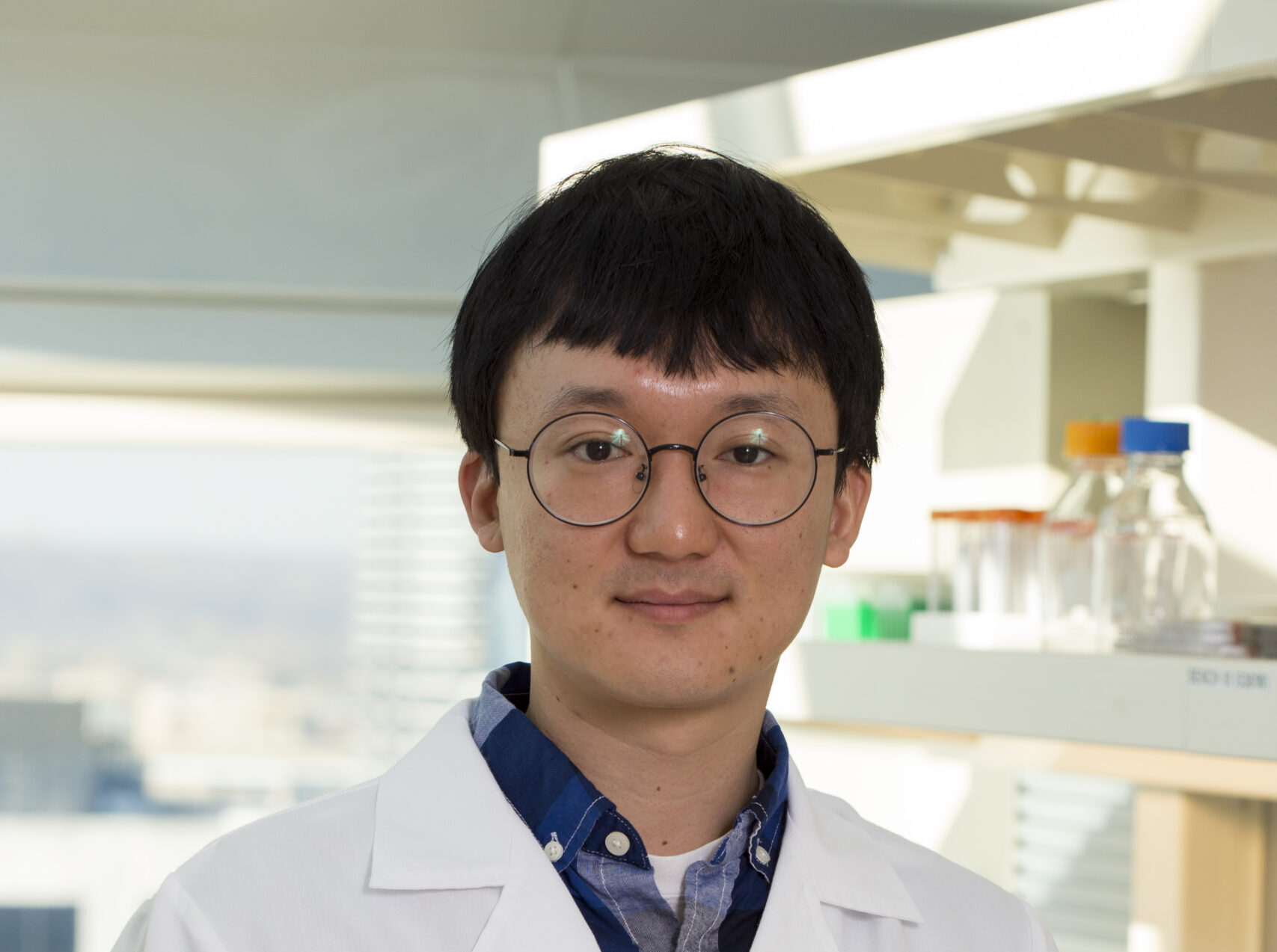Every other month, we highlight one of Van Andel Institute Graduate School’s doctoral students. This month features Wooyoung Choi, a graduate student in the lab of Dr. Wei Lü. Choi’s goal is to determine the shape of important molecules in the body, which help scientists figure out their function. This information is critical for better understanding how the body works when it’s healthy, what goes wrong when it is sick and how to design new therapies for disease.
How would you describe your area of study to your family?
Structural biology can be perfectly described by the quote, “seeing is believing.” It provides a blueprint of the architecture of proteins and molecules in cells and deep insight into their function based on observation.
Visualizing is very important to deduce the function of a specific object. For example, boats and submarines both have the same basic components — engines, deck and control center — yet some can be submerged under the sea and others cannot. By comparing the pictures and blueprints of boats and submarines, the structural basis of these different functions can easily be deduced.
What is your primary motivation for persevering through graduate school?
My fundamental motivation is the curiosity of the unknown. There are so many things that we do not yet clearly understand and sometimes they need to be explained, like why a particular drug can have the intended effect in certain types of cells, but have unintended side effects in different cells.
What do you want to do with your degree?
I would like to keep learning and contribute to the field of structural biology to ensure the field continues to move forward.
Did you take time off before starting your Ph.D. degree or come directly from an undergraduate or master’s degree program?
After earning my master’s degree from Tsinghua University, China, I served in the Korean Army for two years as many Korean men do, and did some world traveling for a year. This experience provided me with insights that changed my outlook on life.
How has your previous coursework contributed to your breadth of knowledge?
My previous coursework helped me think broadly and see the big picture. This may help me when I open my own lab to find scientifically interesting research targets. This training helps me to think not only “what” but also “why” on specific scientific projects.
Do you think there is any value in social networking with other graduate students in non-related fields?
It is very important to understand sciences in different fields. By doing so, many collaborations are created, which is the basis of scientific discovery and impact.
Did your past experiences in life or education help prepare you for graduate school or did you have to develop different strategies to succeed?
My past education and training have provided me with an understanding of what science is and helped me prepare for graduate school through my solid research background. Research is quite an interesting field. Researchers are always pressed by the term “novelty,” which means they should walk alone in the dark. Thus, previous education may help them to find the lantern or light source to get them on the right track.
What is your favorite stress-reduction technique?
My favorite stress reduction method is taking the time I need to be fully rested and going out for coffee or a meal with friends. Social interaction and physical relaxation are practical stress-reduction methods.
What accomplishment (academic or other) are you most proud of?
I am most proud of my recently solved atomic protein structure. It identifies a unique molecular mechanism that had not been proposed yet. I am proud that this idea will make an impact on the protein structure field in the near future.
Has your perception of this Ph.D. program changed since you began the program?
There is no huge difference in my perception of graduate school now compared to before I started, because I had some experience of graduate school before when I was in China earning my Master’s degree. My observation is that Ph.D. candidates and students should ask philosophic questions and find their own way to address those questions. They need to repeatedly undergo a philosophical process and that is exactly what we do at Van Andel Institute Graduate School.
If you were asked to put something in a time capsule for each year you have been in the program and this capsule would not be opened for 25 years, what would you contribute?
I would like to put my passion for science and my friendships made during this program in the time capsule. I have met a lot of nice people here. The friends I’ve made here and my other lab members all support me and help me grow. Science is tough and not easy. I may or may not be in academia in 25 years. However, the passion for science will still make me smile when I open it.
If you hadn’t been admitted to graduate school, what do you think you would be doing right now?
I might have worked in Bejing, China as a businessman if I did not come here. It is a big and fun city. I may enjoy many things there, however, I probably would not be as motivated as I am here in graduate school.
Is there anything else you would like us to know about your doctoral education experience?
I am Korean and studied in China, I am multilingual and a big fan of classical music. I am always open to new adventures and exploring. Life is short, YOLO!
